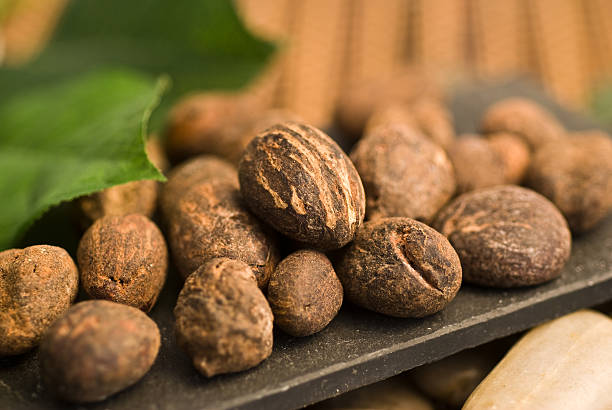Nigeria’s shea nut market experienced a dramatic collapse following President Bola Tinubu’s decision to impose a six-month export ban on raw shea nuts.
The commodity’s price crashed to N800,000 naira ($521) per ton by Thursday’s close, representing a staggering 33 percent decline from just days earlier, according to Bloomberg’s market analysis.
This sharp price drop demonstrates the immediate market impact when government policy disrupts established trade flows.
Rildwan Bello, chief executive of Lagos-based agricultural consultancy Vestance, confirmed these dramatic market movements as traders scrambled to adjust to the new export restrictions.
The August 26 export ban represents Nigeria’s attempt to capture more value from its dominant position in global shea nut production.
Agriculture and Food Security Minister Abubakar Kyari explained that the policy aims to “secure supply for local processors, create jobs, and protect a value chain where 95% of pickers are women.”
Nigeria’s paradoxical market position highlights the policy’s underlying rationale – despite producing nearly 40 percent of the world’s shea nut supply, the country captures less than 1 percent of the $6.5 billion global shea market.
This massive disconnect between production volume and value capture underscores why policymakers believe intervention is necessary.
The ban has created a clear divide within Nigeria’s shea industry regarding its potential effectiveness and implementation approach.
While Bello acknowledges the policy’s good intentions, he warns that “the immediate financial fallout could be severe for exporters now at risk of defaulting on existing contractors.”
The market dynamics reveal a fundamental challenge – local demand cannot immediately absorb the supply previously destined for export markets.
Bello emphasized that “exports made the market vibrant” and cautioned that building processing infrastructure “doesn’t happen overnight.”
Several Nigerian companies view the export ban as a strategic opportunity to strengthen domestic value-added production. Mobola Sagoe, CEO of beauty products company Shea Origin, praised the timing, expecting it to “halt the massive illegal exportation of raw shea nuts from the country and the sub-region.”
Ali Saidu of Salid Agriculture Ltd represents the optimistic processor perspective, planning to significantly increase shea butter production at his central Niger plant over the coming six months. These processors believe the guaranteed raw material supply will enable them to scale operations and compete more effectively in global markets.
International development organizations express skepticism about the policy’s short-term effectiveness and potential negative consequences. Adesuwa Akinboro, country director at TechnoServe, argues that the six-month timeline is insufficient to realize meaningful benefits from local value addition.
Akinboro’s assessment highlights a critical policy dilemma – the ban will initially reduce farmer incomes and shrink overall market activity before any potential benefits materialize. This analysis suggests that while the long-term strategy may have merit, the implementation approach could harm the very women farmers the policy aims to protect.

